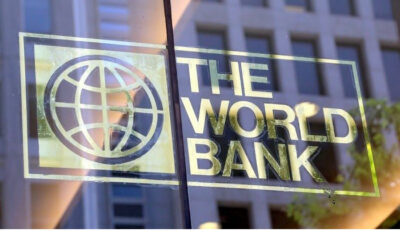News
Dollar index decreases by 1.6% in July – OPEC

The Organisation of the Petroleum Exporting Countries (OPEC) has said the U.S. dollar index decreased by 1.6 per cent month-on-month (m-o-m) in July, erasing gains from the previous period.
The dollar index rose for the second consecutive month in June, increasing marginally by 0.3 per cent m-o-m.
OPEC said this in its Monthly Oil Market Report for August obtained by the News Agency of Nigeria (NAN) on Friday.
The report, while stating the impact of the dollar and inflation on oil prices, said the dollar receded, although the Federal Reserve hiked interest rates by 25 basis points (bp) in July.
This, it said, underscored a shift in risk sentiment as investors’ global macroeconomic outlook improved, and financial markets wagered that the U.S. economy would avoid recession.
According to the OPEC report, Year-on-Year (Y-o-Y), the index was down by 5.2 per cent.
The OPEC report said the dollar experienced mixed movement against major developed market currencies for a second consecutive month in July.
It said it recovered against the euro by 2.2 per cent m-o-m, but receded against the yen and the pound by 0.2 per cent and 2.2 per cent, respectively, over the same period.
It said Y-o-Y, the dollar was up by 8.9 per cent and 3.0 per cent against the euro and yen, respectively; however, it was down by 7.1 per cent against the pound over the same period.
“In terms of emerging market currencies, the dollar declined for a second consecutive month in July against the rupee and the Brazilian real by 0.1 per cent and 1.1 per cent respectively, m-o-m.
“Meanwhile, it advanced against the yuan for a second consecutive month by 0.3 per cent m-o-m,” the oil market report said.
It said Y-o-Y, the dollar was up by 3.2 per cent and 6.7 per cent against the rupee and yuan, respectively; however, it was down by 10.6 per cent against the real over the same period.
It said the differential between nominal and real OPEC Reference Basket (ORB) prices widened m-o-m.
It said inflation (nominal price minus real price) went from negative 1.78 dollars per barrel in June to negative 3.11 dollars per barrel in July, a 76.7 per cent increase m-o-m.
It further stated that in nominal terms, accounting for inflation, the ORB price went from 75.19 per cent per barrel in June to 81.06 per barrel in July, a 7.8 per cent increase m-o-m.
It added that Y-o-Y, the ORB was down by 25.3 per cent in nominal terms.
In real terms (excluding inflation), it said the ORB went from 76.95 dollars per barrel in June to 84.17 dollars per barrel in July, a 9.4 per cent increase m-o-m.
“Y-o-y, the ORB was down by 24.4 per cent in real terms,” it said.
News
Woman killed while crossing road in Anambra

The Federal Road Safety Corps (FRSC), Anambra State Sector Command, has confirmed the death of a woman in an accident at Okpoko Market on the Asaba-Onitsha Road.
The Sector Commander, Mr Adeoye Irelewuyi, who confirmed the accident to journalists in Awka on Thursday, said that the woman was hit while she was crossing the road.
He said that the accident, which occurred on Wednesday, involved a commercial tow truck with registration number XA550BMA.
“Eyewitness report reaching us indicates that the truck was towing a vehicle in an uncontrollable speed along the axis.
“The vehicle that was being towed got detached from the tow truck.
“It hit and killed a female adult, who was said to be crossing the road, while the tow truck continued its movement.
“FRSC rescue team came to the scene and took the woman to Toronto Hospital, Onitsha, where she was confirmed dead and her body deposited at the hospital’s mortuary,” he said.
While sympathising with the family of the dead, the sector commander urged motorists, especially tow truck drivers, to exercise a high level of professionalism.
He also urged the drivers to always use standard equipment and avoid speeding.
News
LASG’s maize palliative impactful, says poultry association chair

The Chairman, Poultry Association of Nigeria (PAN), Lagos State Chapter, Mr Mojeed Iyiola, said the state government’s maize palliative to members of the association made a positive impact on the sector.
Iyiola said this in an interview with the News Agency of Nigeria (NAN) on Thursday in Lagos.
“We received about 150,000 tons of maize in February from the Lagos State government as palliative to cushion the effect of high feed prices.
“The major benefit of the palliative is that it actually cushioned the cost of production for most poultry farmers in the state.
“The palliative was beneficial as it made the cost of some poultry produce, especially eggs to drop,” Iyiola said.
He noted that prior to the palliative, a crate of egg was sold between N3,500 and N3,700 at the farm gate, but after the palliative, it now sells between N3,200 and N3,400.
According to the PAN chair, retailers and middlemen who sell from N3,800 to N4,200 do that for their personal gain.
“We have urged our members to sell their eggs at reasonable prices following the receipt of the palliative from the government.
“We appreciate the Lagos State government for the palliative but we also urge the federal government to do likewise, to further reduce the cost of production in the sector.
“This will consequently lead to drop in the prices of all poultry produce across board,” he said.
He said the palliative was shared among financial members of the association at no extra cost.
“As an association we shared the grains equally across PAN’s eight zones in the state equally. We also mandated each zone not the sell even a grain of the maize.
“We, however, considered new poultry farmers who wanted to the join the association as beneficiaries of the palliative,” said Iyiola.
He noted that through the palliative, more poultry farmers were recruited into the association.
“The maize was shared only to poultry farmers and not feed millers, it is the major component of poultry feed formulation,” he said.

















